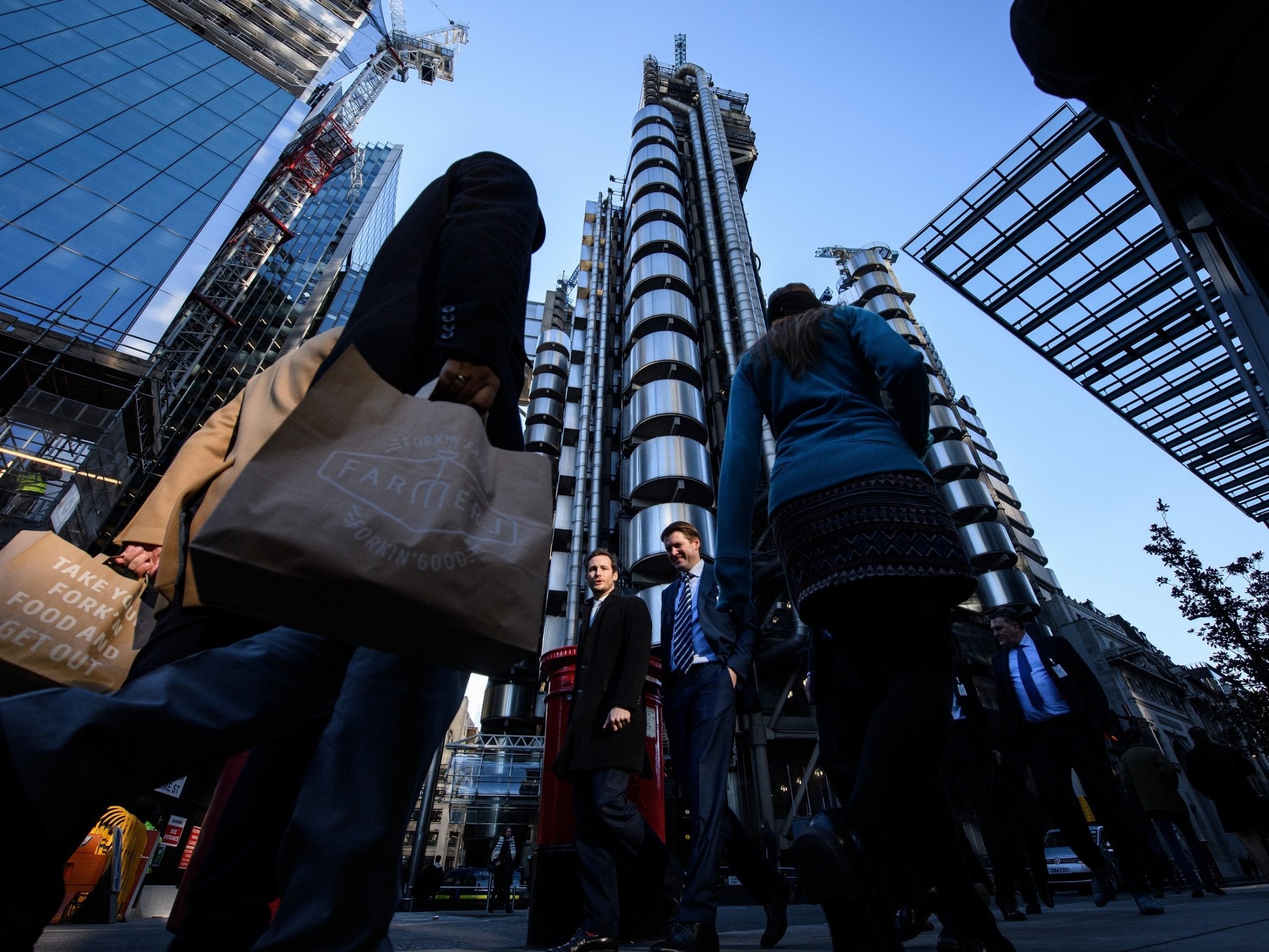The recent Lloyds sexism scandal is not surprising – women are consistently degraded by socially acceptable ‘banter’
The reported pervasive belittling and objectification of women at Lloyd’s of London reveals an environment that excludes people based on their gender


Your support helps us to tell the story
From reproductive rights to climate change to Big Tech, The Independent is on the ground when the story is developing. Whether it's investigating the financials of Elon Musk's pro-Trump PAC or producing our latest documentary, 'The A Word', which shines a light on the American women fighting for reproductive rights, we know how important it is to parse out the facts from the messaging.
At such a critical moment in US history, we need reporters on the ground. Your donation allows us to keep sending journalists to speak to both sides of the story.
The Independent is trusted by Americans across the entire political spectrum. And unlike many other quality news outlets, we choose not to lock Americans out of our reporting and analysis with paywalls. We believe quality journalism should be available to everyone, paid for by those who can afford it.
Your support makes all the difference.Inappropriate comments, rape jokes and groping: reports of an entrenched culture of sexual harassment at Lloyd's of London are vile and unsettling. An investigation by Bloomberg Businessweek described detailed allegations of an “atmosphere of near persistent harassment” in the heart of London’s insurance industry, while Lloyd's say that "it is distressing to hear that this is still happening" and they take it extremely seriously and "will be talking to the Lloyd’s market to ensure that we stamp out these inappropriate behaviours."
While we are right to be outraged by this, it sadly comes as no surprise. In the past few years we’ve seen similar allegations in Hollywood, retail, politics and the charity sector. Not to mention the fact that that the president of the United States famously joked about sexually assaulting women and then passed it off as mere “locker-room talk”.
The 18 women working at Lloyd’s who were interviewed for the article allege being selected for roles on the basis of perceived attractiveness, receiving constant comments about their looks and one even described being attacked by a senior manager at the pub. But it is the incessant claims of verbal harassment that is the recurring theme: not just at Lloyd’s but in the wider insurance industry.
One female broker reports that while working at one company she was regularly made to feel uncomfortable. But after seeing one colleague speak up, complain to HR and then “having to leave insurance”, she says that was thereafter deterred from raising any complaints herself.
One colleague, she says, was referred to as a "hooker" by her male line manager. And yet, she tells The Independent, when the Bloomberg Businessweek investigation was circulated around the office, many dismissed its findings as “ridiculous, claiming it doesn’t apply to them or that they’ve never seen such things happening”.
The Lloyd’s accusations highlight exactly the kind of behaviour that dehumanises women, trivialising them as objects of male sexual desire. As they so often are, these comments are brushed off as “banter”, when in fact they act as persistent reminders that women are lesser in the eyes of the boys’ club. It forces women into an impossible position: accept these remarks as inoffensive mischievousness or become humourless fun sponges or even troublemakers, unable to “take the heat” of the male-dominated environment. In reality, they are made to feel unsafe, undermined and objectified.
The Corporation of Lloyd’s still operates a gender pay gap of 19.9 per cent, greater than the national average. It was described to The Independent as an industry from which “women tend to drop off the cliff in their early thirties”. It sounds more akin to the culture of the 1970s than the present day – which makes sense when you consider that it wasn’t until 1973 that women were even allowed on the Lloyd’s floor – one in which sexism is allowed to fester, ferment and grow.
The claims of pervasive belittling and objectification of women at Lloyd’s of London reveals a culture of microaggression that grows into an environment in which people are excluded based on their gender. The drip-feeding of low-level degradation creates a world that places little value on women, eroding any impression of respect. The idea that an issue is only serious when someone is groped only serves to make the harassment more dangerous. Not only have cases like these been shown to impact women’s mental health, limit their career progression and lower their self-esteem and job satisfaction, but they become a gateway to men putting their money where their mouths are and getting away with groping, assault and even rape.
So while accusations of sexism in the retrograde, male-dominated City that trades on testosterone and male privilege might be unsurprising, they should act as a warning sign of the toxic danger that can occur when we turn a blind eye to this so-called banter.
We know that when women are locked out of industries, it has a ripple effect on the wider culture that surrounds us because it reinforces subconscious biases around the roles of women in society. The impact of small “jokes” revolving around women’s bodies or perceived sexuality can be huge – and we need to create an environment where they’re no longer tolerated, let alone encouraged.
The least we can hope as an outcome of these allegations is that they become just one drop in a deluge of women in the City coming forward to speak up against sexual harassment, a chink in the armour of a world of suits that is still awaiting its own #MeToo moment and all that it is likely to uncover.
Join our commenting forum
Join thought-provoking conversations, follow other Independent readers and see their replies
Comments